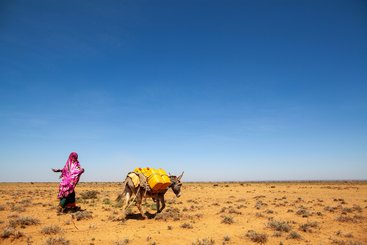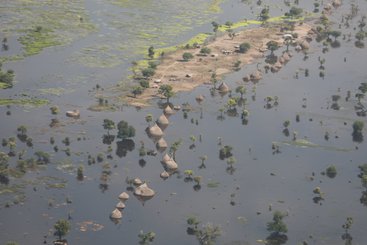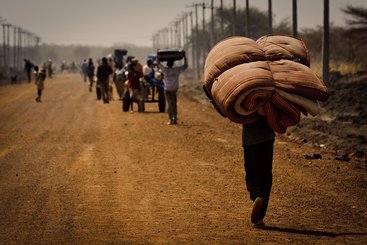This report, produced as part of the research-to-action programme Supporting Pastoralism and Agriculture in Recurrent and Protracted Crises (SPARC), outlines ways that policymakers in Somalia can increase access to climate finance and better integrate adaptation, mitigation and disaster risk management in socioeconomic development.
Somalia is among a group of countries designated as ‘fragile’ by the World Bank; this fragility has created high vulnerability to climate extremes and change. Despite this, Somalia receives little climate finance compared to other countries. There is a need to better understand what barriers and enablers exist in-country to address the adverse impacts of today’s climate hazards and prepare for climate change.
So far, bilateral and multilateral funding has been fundamental to financing climate-related activities in Somalia, but there are missed opportunities in acquiring funding and effective use of the scarce finance. Emerging entry points of action for development and humanitarian actors and the Federal Government of Somalia can enable and accelerate access to resources.
In addition, adaptation priorities identified in national climate and sectoral policies in Somalia do not yet adequately address the range of climate risks to the country’s economic and social development. Climate risks are being addressed in an ad-hoc manner and prioritise immediate- and short-term impacts and needs, rather than preparing for future shifts in temperature, extreme weather, rainfall and water supply or preparing for changes to livelihoods, water demand and urbanisation.
Understanding and framing adaptation priorities in accordance with Somalia’s development priorities, and presenting a unified vision at federal, state and municipal levels, is fundamental for transitioning to climate-resilient development.
Drawing on desk-based research, an independent analysis of existing climate projection datasets from authors with expertise in climate data analysis, a climate risk assessment, and extensive stakeholder consultations with key actors from the Federal Government of Somalia and bilateral and multilateral financial providers, this technical report identifies several entry points that the Federal Government of Somalia, supported by development, humanitarian and climate adaptation actors, can leverage to increase access to climate finance and begin incorporating adaptation, mitigation and disaster risk management within socio-economic development and transition to climate-resilient development. These entry points include:
- Strengthening the capacity of the Ministry of Environment and Climate Change (MoECC)
- Improving climate data acquisition under the Somali Water and Land Information Management (SWALIM) system
- Enhancing coordination, collaboration and coherence across development, humanitarian partners and accredited agencies to the vertical climate funds.
-
Climate-resilient development for Somalia
Read more about Climate-resilient development for Somalia.






